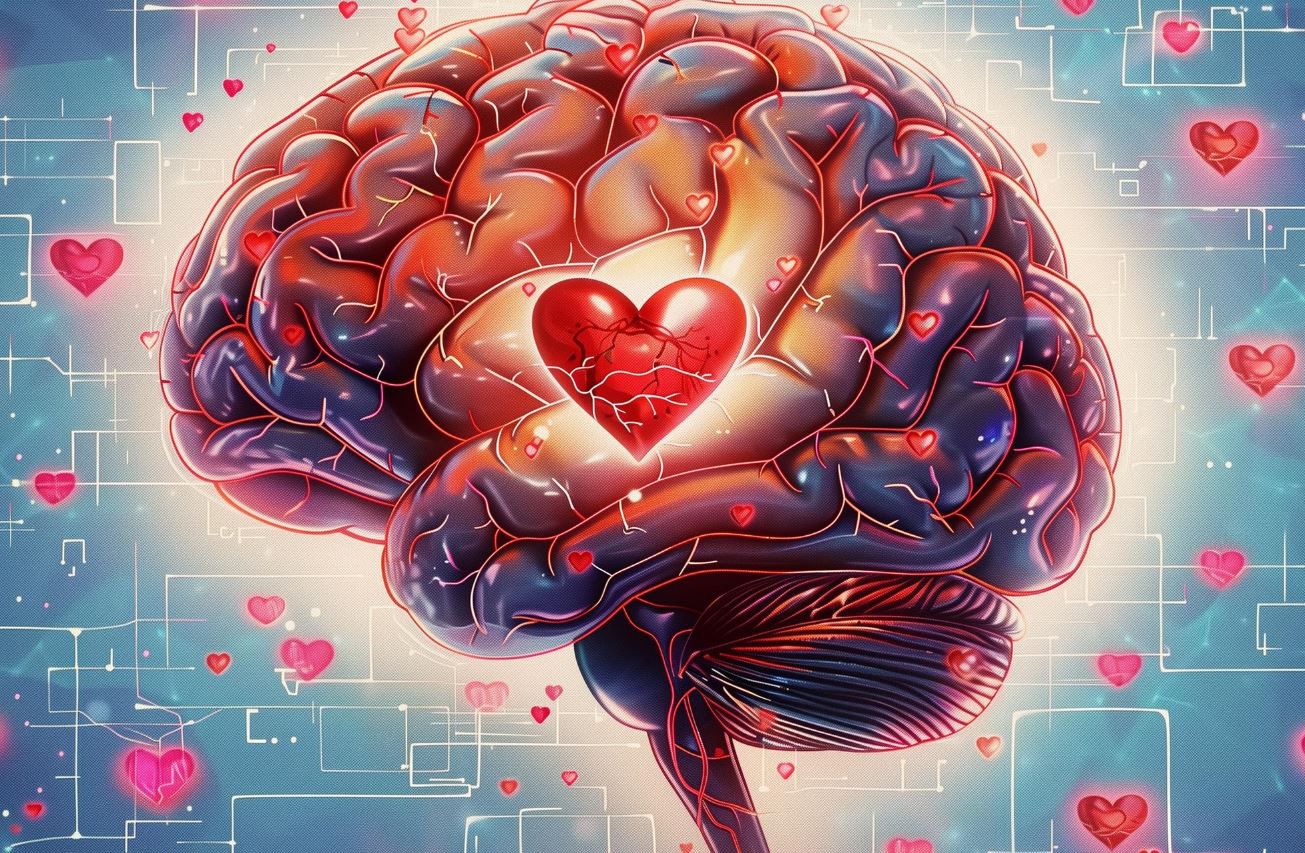
Love—it's one of the most captivating, exhilarating, and confusing experiences we can have. But while the feeling itself often seems like a magical mystery, science can actually shed light on what’s going on in our brains when we fall head over heels for someone. If you've ever wondered why love can feel so electrifying (and sometimes a bit overwhelming), it all comes down to a cocktail of hormones and chemicals that flood your brain. Let’s take a peek into the science of love, and see what’s happening behind the scenes.
The Early Stages: Attraction and Infatuation
When you first meet someone and feel that instant connection, it’s not just the butterflies in your stomach—it’s your brain chemistry going into overdrive. This initial spark of attraction is largely driven by dopamine, often referred to as the feel-good hormone.
Dopamine is released when we experience something rewarding, and falling for someone triggers this release. It’s the same chemical responsible for the pleasure we get from food, exercise, and yes, even social media likes. This flood of dopamine gives you that rush of excitement, making you crave more of the person you’re attracted to. Think of it as your brain’s way of telling you, This feels good, so let's do it again! It’s what fuels those obsessive thoughts and the fluttery feeling when you see their name pop up on your phone.
But there’s more to the story than just dopamine. Norepinephrine, another brain chemical, also kicks in during the early stages of infatuation. This hormone increases your heart rate, causes sweaty palms, and makes you feel on edge (in a good way). It's the reason your pulse races when you see your crush, or why you can't seem to concentrate when you’re thinking about them.
The Role of Attachment: Oxytocin and Bonding
As love evolves from the initial thrill of attraction into something deeper and more meaningful, your brain shifts gears, and oxytocin becomes the star of the show. Often dubbed the cuddle hormone or love hormone, oxytocin plays a crucial role in building strong emotional bonds and fostering attachment.
Oxytocin is released during physical touch—like hugging, kissing, or even holding hands. It’s the hormone that makes you feel all warm and connected, not just in romantic relationships, but also in friendships and between parents and children. The release of oxytocin when you're close to someone helps to deepen emotional intimacy and strengthens the bond between you and your partner. It’s no wonder that cuddling or snuggling on the sofa can feel so comforting; oxytocin is creating those feelings of trust and security.
Interestingly, oxytocin is also involved in the birth process and breastfeeding, reinforcing its role in fostering closeness and connection.
The Happiness Hormone: Serotonin
Serotonin, the brain’s mood stabiliser, also plays a part in your feelings of love, although in a slightly different way. When you first fall for someone, your serotonin levels can actually drop, which is why the early stages of love can feel all-consuming and even a bit obsessive. You're so focused on the person, thinking about them constantly, and wondering what they’re doing, it's as if your brain is temporarily distracted from everything else.
However, as the relationship matures and becomes more secure, serotonin levels normalise, helping to maintain a sense of emotional stability. Essentially, serotonin helps you feel content and happy in your relationship, making you feel secure in the bond you've formed. This is why long-term love can lead to a sense of calm, peace, and happiness. It’s the stability that comes with knowing you have someone you can rely on.
The Passion: Testosterone and Estrogen
When it comes to sexual attraction and desire, testosterone and oestrogen are the hormones responsible for the physical side of love. While both hormones are present in men and women, they are typically more dominant in men and women respectively.
Testosterone drives the sexual desire and passion that often accompanies new love. It’s the reason you might feel an irresistible attraction to someone, and why sexual attraction can feel so intense in the early days of a relationship.
For women, oestrogen plays a role in sexual arousal and is linked to increased sensitivity, which is why sexual attraction can feel heightened during this period.
These hormones work together, creating that undeniable physical chemistry that can spark passion between two people. And while they may fluctuate throughout the course of a relationship, they are always at the heart of romantic and sexual desire.
The Afterglow: A Deepening Connection
Once the initial rush of infatuation starts to settle, the long-term effects of love become more about deep emotional connection and companionship. This is where oxytocin’s bonding power and serotonin’s mood-stabilising influence really shine. Love becomes more about security, trust, and mutual respect—helping the relationship stand the test of time.
And let’s not forget about endorphins, the body’s natural painkillers, which are released when you experience physical closeness or sexual intimacy. These feel-good chemicals can create a sense of euphoria and relaxation, making the act of being close to your partner feel not just emotionally satisfying, but physically pleasurable as well.
So, What's the Bottom Line?
When you fall in love, your brain is essentially flooded with a cocktail of chemicals that bring joy, excitement, desire, and attachment. Dopamine and norepinephrine create the rush of infatuation, while oxytocin and serotonin strengthen the emotional bonds and keep the relationship grounded in happiness. Testosterone and oestrogen fuel the passion and sexual desire, and endorphins provide that wonderful afterglow of closeness and intimacy.
Understanding the science behind love doesn’t make it any less magical. In fact, knowing that all these powerful brain chemicals are at play only makes the experience even more fascinating. So, the next time you're feeling that rush of attraction or that deep sense of connection, just remember: it’s all thanks to your brain and the beautiful, complex chemistry of love.
Read Full Story

















Facebook
Twitter
Pinterest
Instagram
Google+
YouTube
LinkedIn
RSS